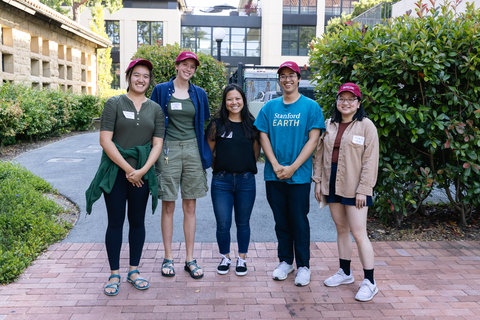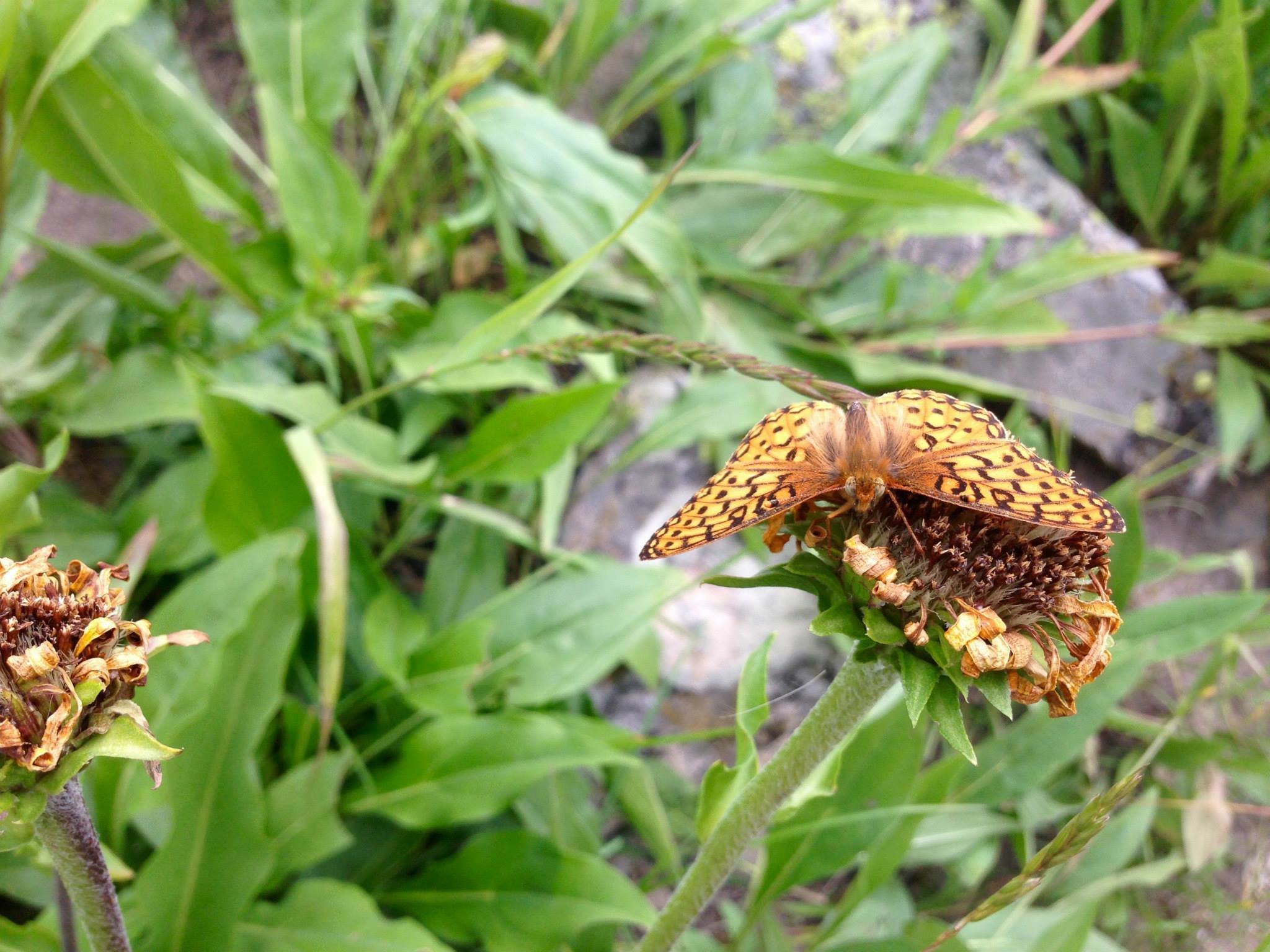Mentoring Undergraduates in Interdisciplinary Research (MUIR)
Applications for the 2024 MUIR program are closed.
Through the MUIR program, faculty identify and submit an application on behalf of a Stanford undergraduate student who will work on a specific research project in support of the faculty member’s environmental research. MUIR fellowships allow faculty members to bring to their lab a funded undergraduate research intern who commits to working on their research full-time over the course of the summer (10 weeks).
The Stanford Woods Institute for the Environment’s MUIR program provides undergraduate fellows with a stipend of $7,500. Students are eligible for an additional need-based supplement of up to $1,500, per VPUE's and the Office of Financial Aid's determination. Please note that only Stanford students who will be enrolled as an undergraduate the following Fall 2024 Quarter are eligible. Co-term students are eligible if they confer their undergraduate degree in Fall 2024. Student and mentor eligibility can be found on VPUE's Departmental Grant website.
Stanford faculty members must apply on behalf of undergraduates, and the Woods Institute invites faculty from all departments to apply. The Stanford undergraduate may also be from any department. Fund priority goes to proposals submitted by Stanford Woods Institute affiliated faculty and by faculty who identify a student in their application. Students wishing to initiate a project must approach a faculty member who is willing to apply on the student's behalf. If you are a student looking for a project, please see the list of project teasers (filter for MUIR) and reach out to any faculty members that you are interested in working with. If it is a good match, they will submit an application with you identified as their undergraduate researcher.
If you are proposing a project that involves international travel, continue to pay special attention to current Stanford travel restrictions and undergraduate research policies. Guidelines and advisories from Stanford Global Risk can be found here.
Read about past MUIR summer projects, and learn about the impact of research from 2023 MUIR Scholar, Claire Morton.
DEADLINE: February 15, 2024
Faculty Applications:
Faculty applications should describe the interdisciplinary research planned, the tasks the undergraduate will perform, what the student will glean from the work and the qualifications needed by the student. Applications also should list any researchers other than the applying faculty member with whom the student will interact during the course of his or her research and discuss how much interaction the applying faculty member will have with the student over the course of the summer.
Faculty members are strongly discouraged from proposing research projects without first identifying a student to work on the project. If necessary, the Stanford Woods Institute can assist in recruiting potential student applicants, but cannot guarantee a placement. The faculty mentor must interview and select the student to work on the project.
The Stanford Woods Institute encourages faculty to cost-share when possible, so that we can accommodate as many students as possible in the program. Please note that the Woods Institute’s MUIR program does not fund research directly related to honors or senior projects or theses. The program is intended to provide students a mentoring opportunity through the course of assisting in faculty research. Students should not be expected to use their awarded stipend for travel or other expenses related to the proposed project; this should come from the faculty member's grants or other funding sources. In addition, the Woods Institute does not provide work space for the undergraduate researcher, so please work with your department to create an adequate work environment for your student.
Student Requirements
- Must be enrolled as an undergraduate the following Fall 2024 Quarter. Co-term students are eligible if they confer their undergraduate degree in Fall 2024. Student eligibility can be found on VPUE's Departmental Grant website.
- Enroll in a one-unit course, ESS 108, in spring quarter to prepare for the undergraduate research experience.
- Work full time (35+ hours/week) with your faculty mentor for 10 weeks over the summer to complete your proposed project.
- Attend the weekly lunch seminar series during the summer (when on campus) that will include lectures by faculty and workshops on poster making and oral presentations. This seminar series is help jointly with the Precourt Institute's SUPER program.
- Attend planned field trips and other cohort building events, as your schedule allows.
- Complete program evaluations at the mid-point and at the end of the program.
- Create a poster showcasing your summer research and present at the Stanford Doerr School of Sustainability's Undergraduate Research Symposium, which is held in October on the Friday of Homecoming Weekend. If you cannot participate in this, you may instead present at the Vice Provost for Undergraduate Education's Symposia of Undergraduate Research and Public Service (SURPS or ASURPS).

MUIR Timeline
October - December: Faculty and research mentors submit project teasers to help undergraduate students find available projects
December 1: Available projects proposed by faculty and research mentors are posted (undergraduate students should reach out to the primary contact listed to see if they are a good fit for the project and establish a connection)
December 15: Applications for MUIR open (note: applications must be submitted by the faculty member with the undergraduate student research identified)
February 15: Applications for MUIR close
March 15: Notification of finalists (note that accepted students will need to sign up for ESS 108 in the spring quarter)
April 1: Acceptance deadline
June 24: MUIR program commences
August 30: MUIR program closes
October (Friday of Homecoming Weekend): SDSS Undergraduate Research Symposium
Contact Information
Jen Chiu
Program Associate
jchiu24@stanford.edu

